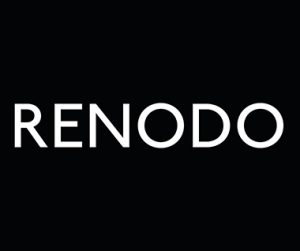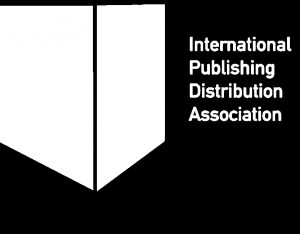The first keynote speech of Readmagine 24 was the presentation by Madeline McIntosh (co-founder, CEO and Publisher of Authors Equity), introduced by Porter Anderson (Editor-in-Chief of Publishing Perspectives).
Madeline McIntosh started her keynote by confronting the traditional publishing landscape based on “Cultural Gatekeepers”, where publishers like Bennett Cerf (co-founder of Random House) were once seen as cultural gatekeepers who decided which authors became successful with a new situation where the role of authors is much more relevant. This shift to “author-centric success” is founded on authors like Colleen Hoover, who accounted for a significant portion of US fiction sales in 2023, represents a change where authors drive their own success, often through self-publishing and direct engagement with readers.
The variable that is relevant, according to McIntosh, is the impact of digitalization. This impact of digitalization pivots in two pillars:
- Around the e-commerce and the spread of digital Books. The advent of e-commerce and digital books (e.g., Kindle) revolutionized the market and despite initial fears, books are selling more than ever.
- The granular content consumption, because today’s consumers are highly distracted and engage with media in fragmented micro-markets, unlike the mass market of the past.
In her description of the landscape which makes necessary a transformation as the one proposed by “Authors Equity” McIntosh also alluded to two driving forces on the retail and media dynamics:
- Concentration in Retail: US retail has become more concentrated, with a large portion of transactions occurring online and on mobile devices.
- Fragmented Media: Media consumption has become divided, necessitating new marketing strategies like podcast tours, instead of traditional TV and radio appearances.
Along with the previous trends there are also two specific trends that impact on the role of authors and the balance between the author and publisher in terms of control:
- Stronger author brands: In the current market, authors often have stronger brand presence and control than publishers, which is crucial for capturing the attention of distracted consumers.
- Publishing choices for authors: Established authors can now choose between self-publishing, traditional publishers, or innovative models like Authors Equity.
Is considering this group of factors, how McIntosh explained the meaning, interest and opportunity of her new business undertaking, the “Authors Equity”.
The Authors Equity business model is characterized by the following points.
First, there is an intend declaration or “founding Vision”:
Authors Equity aims to reconstruct the publishing model to better serve authors, emphasizing profit-sharing and strategic marketing.
The model is based on a very lean structure, because this new company operates with a small core team and relies on a network of freelancers, keeping overhead low and focusing on direct costs related to publication.
The model is clearly defined by a profit-sharing system, which means that the authors receive a majority share of profits, with Authors Equity handling strategy, marketing, and partnerships.
There are also broader revenue sources: Authors Equity explores additional revenue streams beyond book sales, such as licensing intellectual property for educational programs.
In this first stage Authors Equity is focused on early success and author profiles which will provide a push forward in the first steps, defined by McIntosh through two ideas:
- Diverse Author Sign-ups: Authors Equity has attracted a variety of authors, from established bestsellers to new voices, all willing to try innovative approaches.
- Focus on Control and Innovation: Authors interested in control and innovative marketing strategies are more likely to work with Authors Equity.
During these first steps there is market and competitive response, summarized by some competitive adjustments, as the established publishers have quickly adapted by offering profit-sharing models to retain authors. By part of Authors Equity, the core value proposition is providing focused attention to authors rather than scale, appealing to those who prioritize control.
McIntosh also shared some prospects:
- Closer Audience Connection: By working closely with authors who have a direct connection with their readers, Authors Equity hopes to better anticipate market trends and reader preferences.
- Book Launches: Authors Equity plans to announce its first books on June 12, showcasing a diverse and potentially controversial list of titles.
You can follow in this video the whole presentation by Madeline McIntosh and the conversation with Porter Anderson.
Some of the discussion highlights were also:
The issue of risk-taking and control: Authors who are willing to take risks and desire control over their work are attracted to the Authors Equity model.
The trends on the audience evolution: Understanding the evolving preferences of readers is crucial, and closer collaboration with authors might offer better insights into market trends.
The overall impact of this innovative publishing approach by Authors Equity represents a significant shift in the publishing industry, focusing on author empowerment, profit-sharing, and innovative marketing strategies.
Madeline McIntosh is the co-founder, CEO and Publisher of Authors Equity (www.authorsequity.com), a recently launched US-based publisher dedicated to reshaping the relationship between author and publisher. She is known for her work as a digital pioneer, having played a seminal role in each of the major inflection points in the consumer book market over the past three decades, including ecommerce, digital audio, and ebooks. Prior to founding her new company, Madeline was the CEO of Penguin Random House in the US. She currently serves on the boards of Simon & Schuster and the US-based nonprofit, Poets & Writers.
Porter Anderson BA, MA, MFA, is a journalist, speaker, and consultant specializing in book publishing. Formerly with CNN and CNN International as well as the Village Voice, the Dallas Times Herald, and The Bookseller, he is Editor-in-Chief of Publishing Perspectives, founded and operated by Frankfurt Book Fair New York. Publishing Perspectives is the news medium for the international trade publishing industry. With Jane Friedman, Anderson produces The Hot Sheet, a private subscription newsletter of expert industry analysis written expressly for trade and independent authors.
Within the past year, Anderson has spoken and/or covered and/or programmed events in international publishing at venues including Frankfurt Book Fair and its Business Club, The International Publishers Association’s 32nd World Congress in New Delhi, StoryDrive Asia in Singapore, London Book Fair, Publishers Forum in Berlin, BookExpo in New York City, the Women’s Fiction Festival in Matera, PubTechConnect in New York City, The Muse and the Marketplace in Boston, FutureBook in London, the Writer’s Digest Annual Conference in New York and Los Angeles, Digital Book World in New York, Sharjah International Book Fair and the Abu Dhabi International Book Fair in the UAE, and the Association of Writers and Writing Programs (AWP) in Tampa and Washington.





